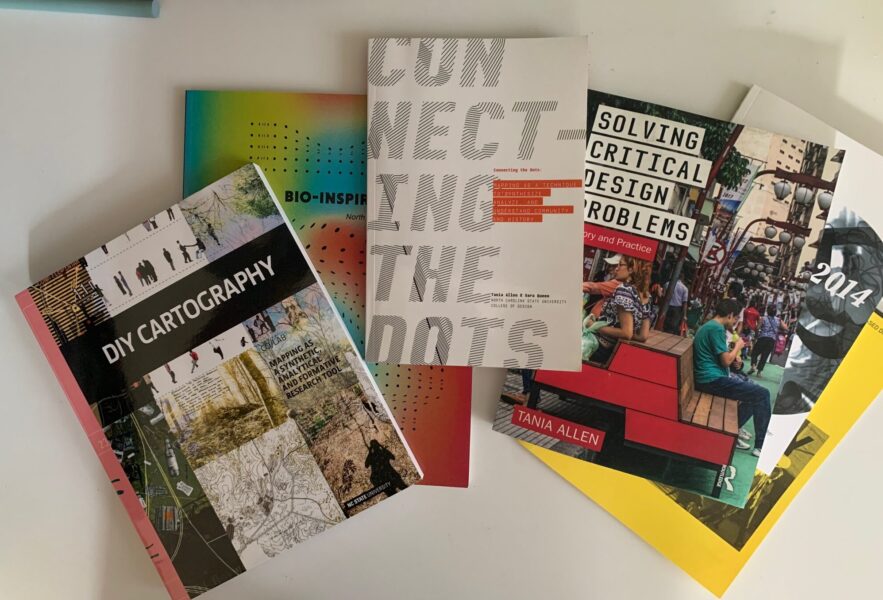
Books and Journal Articles
Allen, Tania and Queen, Sara. “Oppressive Infrastructures: Mapping Racism and Equity in the Built
Environment”. Book Chapter. Empty Pedestels. Deming, E. and Boone, K. (eds), expected publication,
2023.
Allen, Tania and Queen, Sara. DIY Cartography: Mapping as Analytic, Synthetic and Formative
Design Research Tool. Design Communication Association, October 2018.
Allen, Tania and Queen, Sara. “Critical Placemaking: Towards a more critical engagement for
participatory design in the urban environment.” Design Research Society, Catalyst. June 2018.
Fox, Andrew, et. al. Homeplace: A Conversation Guide for Six Communities, Rebuilding After Hurricane Matthew. Coastal Dynamics Lab, 2017.
Allen, Tania and Queen, Sara. “Beyond the Map: Unpacking Critical Cartography in the Digital Humanities.” Visible Language Special Issue: Critical Making, Design and the Digital Humanities. Vol 49.3, December 2015, 78-99.
Allen, Tania. “Maps, Mapping and Cultural Identity: Implications for Design.” Infrastructural Worlds Symposium. Duke University Department of Cultural Anthropology, April 2014.
Allen, Tania, Sara Queen and Marc Russo. “Mapping Focus: A Proposed Research Network.”
Spaces and Flows, Fall 2011.
Talks and Presentations
Allen, Tania and Queen, Sara. “Oppressive Infrastructures: Mapping Racism and Equity in the Built
Environment”. Coffee and Viz. NCSU Libraries, November 2022.
Allen, Tania and Queen, Sara. “Oppressive Infrastructures: Mapping Inequity in Design Research”. DDes Lecture Series. NCSU Libraries, November 2022.
Allen, Tania and Queen, Sara. “Oppressive Infrastructures: Mapping Racism and Equity in the Built
Environment”. AIA Aspire, October 2022